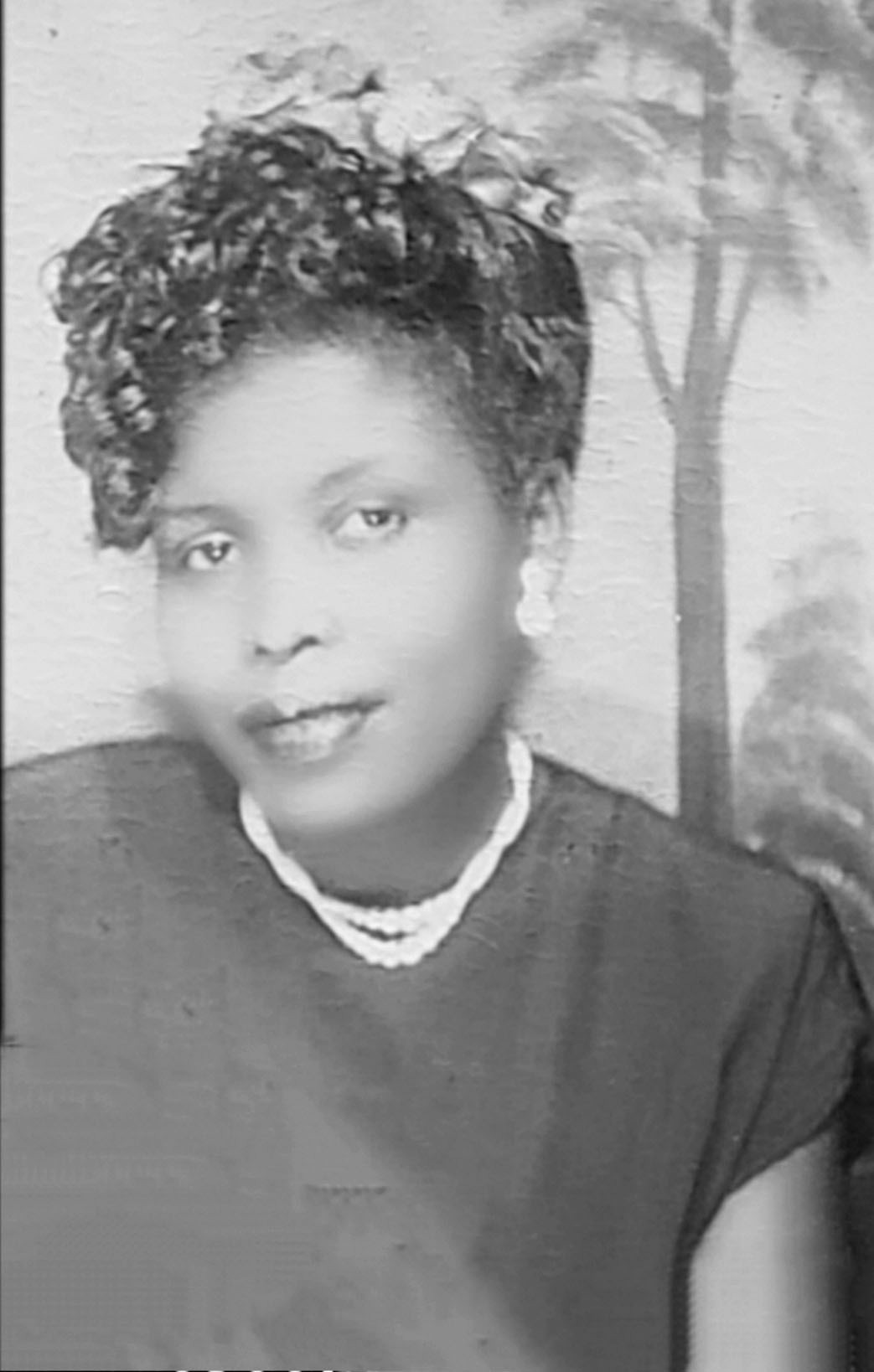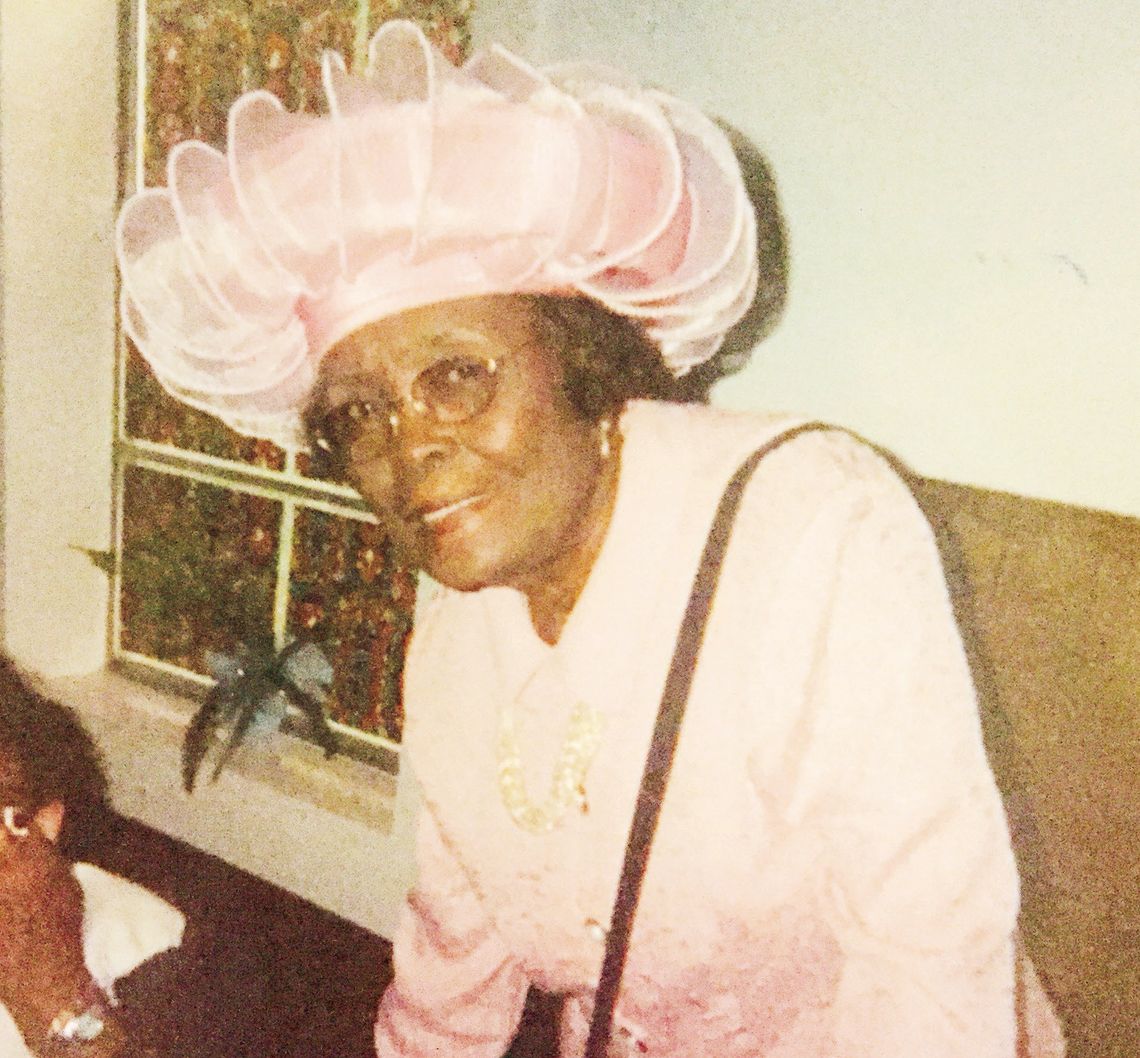Eagle Lake woman c elebrates centennial landmark
Ora Lou Jones Sykes’ 100 years on Earth, as told by her daughter
You can go through a lot in just one year, 365 days, 52 weeks or 31,536,000 seconds being alive.
Imagine how much you experience in 100 years.
Ora Lou Jones Sykes, otherwise known as “Miss Billie” or “Billie Jones,” celebrated her 100th birthday last Tuesday, Nov. 12, reaching the centennial milestone that few people ever live to see.
The Citizen sat down with her daughter, Sarah Bernadette Robinson Williams, to get more insight into the incredible 100 years of life that Billie has lived.
Born on Nov. 12, 1924 to Reverend Johnny Jones and Ora Lou Jones in East Bernard, Billie is the third daughter of 13 children, growing up with four brothers and eight sisters.
Her father started calling her Billie as a child to differentiate between her and her mother, who shared the same name. She is one of only three siblings still alive.
Billie graduated from E.H. Henry Highschool at the age of 18 in 1942. A good student who liked to recite poems, Billie’s favorite poem was one she learned while in school titled “the Psalm of Life” by Henry Wadsworth, that would reflect the path she would embark on as an adult.
Billie initially thought about working as a teacher but wanted a more independent lifestyle, instead opting to pursue a career as a licensed and renowned cosmetologist in Colorado County.
“She became an independent woman long before women were allowed to be independent,” said Williams. “She owned her own house and car, what many women didn’t have in the 60s.”
Billie operated Ora’s Beauty Shop in Eagle Lake, Texas, where she served many of the women in Eagle Lake and surrounding communities for years. She also worked as a life insurance agent for Atlanta Life Insurance, alongside working as the director of a senior citizens program in Eagle Lake held at the Episcopal Church and in Austin County as an election worker.
Having owned and operated her own beauty shop, Billie always saw to it that her hair was done, and her outfits were glamorous. Williams said her mother was a beautiful woman inside and out, drawing people to her naturally from her beauty and brains.
“She was something special. I always laughingly talk about my mother,” said Williams. “Her friends use to call her “the girl that can’t help but help it.” There was a movie starring Marilyn Monroe called “A Girl Can’t Help It,” my mother had the same type of beauty as Marilyn. People were drawn to her and would always want to be around her. Her hair was always superbly coiffed, she was always well dressed, she had a beautiful figure, and her voice was beautiful as well. She was a thing of beauty. She had such a magnetic personality.”
Despite the turbulent era Billie lived through, Williams said she was able to accomplish what very few women were unable to in the same time period.

“She came up in the segregated south,” said Williams. “And I am very proud of her that while other women didn’t have it quite as easy as she did, she managed to be an independent woman. She did not have to be “The Help.” She did not have to cater to people who would make her as a black woman feel less than so. She made her own money and was very creative. She could take a piece of nothing and make something out of it. Highly creative and insightful, kind, caring woman.”
A highly respected woman, Billie was and still is a member of Mt. Olive Baptist Church, having served in many capacities at the church her entire life. She served as a clerk, was on the ushering board and was also a part of the financial committee in her later years, helping handle the church’s finances.
Billie was married to Oscar Sykes, and the pair purchased a home together in Sealy. She had two children, a son by the name of Kermit Robinson who was a veteran, and a daughter, Sarah Bernadette Robinson Williams. Williams says that despite only having two children, she cared for any child.
“All of her other sisters and some brothers relocated to Houston,” said Williams. “But during the summertime, they would send their children to Eagle Lake to spend time with her because they knew she would be at home while they had to go to work. All her nieces and nephews came to stay with her during the summer, and she took great care of them. She nurtured many of the children in Eagle Lake, having taught in Sunday school as well.”
Billie’s physical shop still exists to this day as well as the house that she lived in still exists. Will iams says her mother truly loved the city of Eagle Lake, highlighting the pride she had for her city, and the pride her city had for her.
“She loved Eagle Lake,” said Williams. “You could just hear it in her voice when she said, “the Lake.” She had pride for her city, and her city had pride for her. She loved Mt. Olive Baptist Church and all her friends. Her roots go very deep in Eagle Lake. Her shop and house were located just down the street from the high school.”
Williams says her mother was an ever-present parent in her life and would always be there physically when she needed her most, whether it be visiting her in boarding school, or making the treks to see her at the various universities she attended.
One of Williams’ fondest memories of Billie and a testament to her kindness came as a 12-year-old, when Williams broke one of her grandmother’s precious ornaments, a coal oil lamp, while dancing around the house. Instead of reacting angrily, her mother calmly cleaned up the mess and did not fuss.
“I was afraid she would be mad or chastise me, but she didn’t at all,” said Williams. “She didn’t fuss at me one bit. She just cleaned up the scraps of glass and put them in the trash. I knew that I was loved, and I learned through her how to love people even when bad things happen. She demonstrated that to me.”
Williams says her mother always supported achievement no matter the gender, race, religion or political alignment. She emphasizes how Billie has been an observer of history and would have never anticipated living to see through so many significant societal changes, from multiple wars, Jim Crow and segregation to witnessing the African American man become president of the United States.
“To see African Americans progress from cotton pickers and being treated less than white folks,” said Williams. “To become astronauts, Miss Americas, mayors, governors, state senators, legislators, ambassadors. She has seen us go from a discriminatory, segregated society to one where you can now live and thrive at the top. To her it was nothing short of a miracle.”
.jpg)



